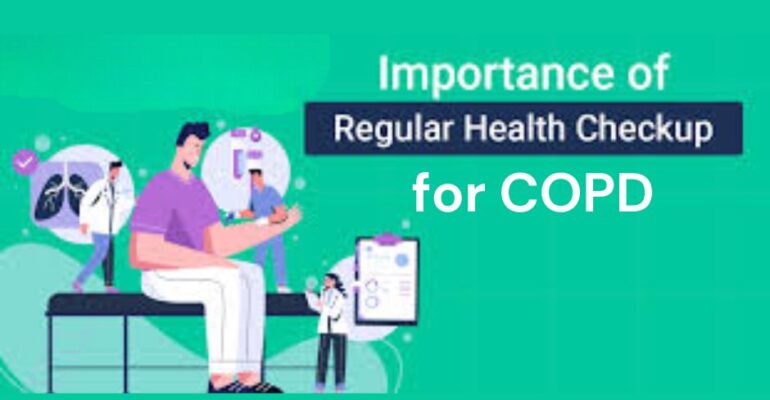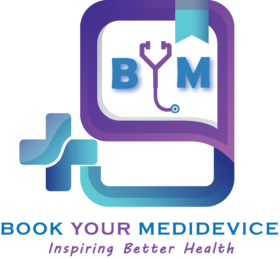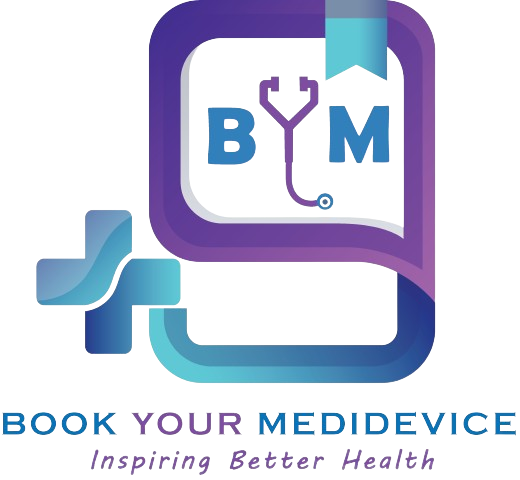The Importance of Regular Check-Ups for COPD Management
August 16, 2024 2024-08-16 7:56The Importance of Regular Check-Ups for COPD Management

The Importance of Regular Check-Ups for COPD Management
Discover why regular check-ups for COPD are essential for managing your condition effectively. Learn how check-ups for COPD help monitor disease progression, optimize treatment, and prevent complications. Ensure better health outcomes with consistent check-ups for COPD.
Chronic Obstructive Pulmonary Disease (COPD) is a progressive lung condition characterized by persistent airflow limitation and breathing difficulties. Managing COPD effectively requires a comprehensive approach that includes medication, lifestyle adjustments, and regular medical check-ups. Regular check-ups are crucial for monitoring the disease’s progression, optimizing treatment, and maintaining a high quality of life. Here’s why regular check-ups are essential for COPD management and what you can expect during these appointments.
Monitoring Disease Progression
COPD is a progressive disease, meaning it tends to worsen over time. Regular check-ups allow healthcare providers to assess how well your lungs are functioning and how the disease is advancing. During these appointments, your doctor will perform tests such as spirometry, which measures how much air you can exhale and how quickly. This helps in determining the severity of your COPD and adjusting your treatment plan accordingly.
Regular monitoring also helps in identifying any complications or comorbid conditions that may arise. For example, COPD patients are at increased risk of heart disease, so routine check-ups allow for early detection and management of such conditions.
Optimizing Treatment
COPD management often involves a combination of medications, including bronchodilators and inhaled corticosteroids. Regular check-ups are vital for evaluating the effectiveness of these medications and making necessary adjustments. Your healthcare provider will review your medication regimen, assess your response to treatment, and modify dosages if needed to ensure optimal control of your symptoms.
Additionally, check-ups provide an opportunity to address any side effects you may be experiencing from your medications. Managing side effects effectively can improve your overall comfort and adherence to your treatment plan.
Preventing and Managing Exacerbations
COPD exacerbations, or flare-ups, are episodes where symptoms worsen significantly, often requiring additional medical attention. Regular check-ups help in assessing your risk for exacerbations and implementing strategies to prevent them. Your doctor will review any recent symptoms, discuss potential triggers, and provide advice on how to manage or avoid exacerbations.
Early intervention during a check-up can also help in preventing exacerbations from escalating into more severe health crises. If an exacerbation is detected, your healthcare provider can adjust your treatment plan to address the immediate issues and help you recover more quickly.
Addressing Lifestyle and Behavioral Changes
Managing COPD involves more than just medication; it also requires lifestyle changes such as quitting smoking, improving nutrition, and incorporating regular exercise. During your check-ups, your healthcare provider can provide guidance and support on these aspects of your management plan. They can help you set realistic goals, track your progress, and make adjustments as needed.
For example, if you’ve recently quit smoking or started a new exercise program, your doctor can offer advice on how to incorporate these changes into your routine effectively. They can also provide resources or referrals to support services, such as smoking cessation programs or pulmonary rehabilitation.
Educating and Empowering Patients
Regular check-ups offer a valuable opportunity for education and empowerment. Your healthcare provider can explain aspects of your condition, answer questions about your treatment plan, and provide tips for managing symptoms at home. Understanding your disease and treatment options can help you make informed decisions and actively participate in your care.
Additionally, check-ups can address any concerns or uncertainties you may have. Whether you’re experiencing new symptoms or have questions about your medication, your appointment is the time to discuss these issues and receive personalized advice.
Building a Collaborative Relationship
A key component of successful COPD management is maintaining a collaborative relationship with your healthcare team. Regular check-ups foster this collaboration by keeping open lines of communication and ensuring that both you and your provider are aligned in your treatment goals. This partnership is crucial for effectively managing a chronic condition like COPD.
By attending regular appointments, you demonstrate a commitment to your health and show that you are actively engaged in managing your condition. This proactive approach helps your healthcare provider tailor your care to meet your specific needs and preferences.
What to Expect During a Check-Up
During a routine COPD check-up, you can expect a thorough review of your symptoms, medication use, and overall health. Your doctor may perform various tests, including:
- Spirometry: To measure lung function.
- Pulse Oximetry: To check oxygen levels in your blood.
- Chest X-Rays or CT Scans: To assess changes in lung structure.
You will also discuss any recent changes in your symptoms, medication side effects, and lifestyle adjustments. Based on this information, your doctor will adjust your treatment plan as needed and provide recommendations for ongoing management.
Conclusion
Regular check-ups are a cornerstone of effective COPD management. They provide essential insights into disease progression, optimize treatment, prevent and manage exacerbations, and support lifestyle changes. By maintaining regular appointments with your healthcare provider, you take an active role in managing your COPD and enhancing your quality of life. Embrace these check-ups as opportunities for collaboration, education, and empowerment, and continue to work closely with your healthcare team to navigate your COPD journey successfully.
In conclusion, regular check-ups for COPD are vital for maintaining optimal health and managing this chronic condition effectively. These check-ups for COPD enable healthcare providers to monitor disease progression, assess treatment efficacy, and make necessary adjustments to your management plan. By attending check-ups for COPD, you can prevent complications, address any emerging issues, and receive timely interventions that can significantly improve your quality of life.
The value of check-ups for COPD extends beyond routine evaluations; they are opportunities for education, support, and empowerment in your health journey. Embracing regular check-ups for COPD demonstrates your commitment to proactive care and collaboration with your healthcare team. Ultimately, consistent check-ups for COPD play a crucial role in achieving better health outcomes and enhancing overall well-being.



